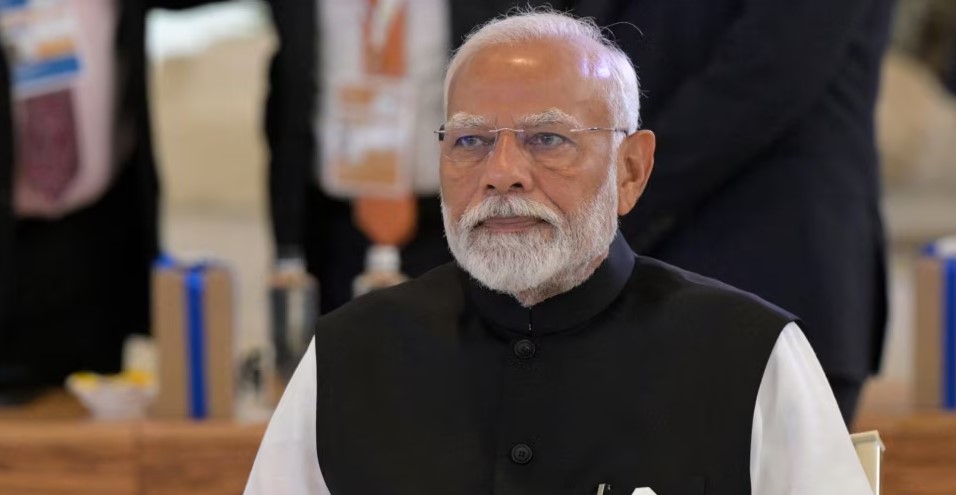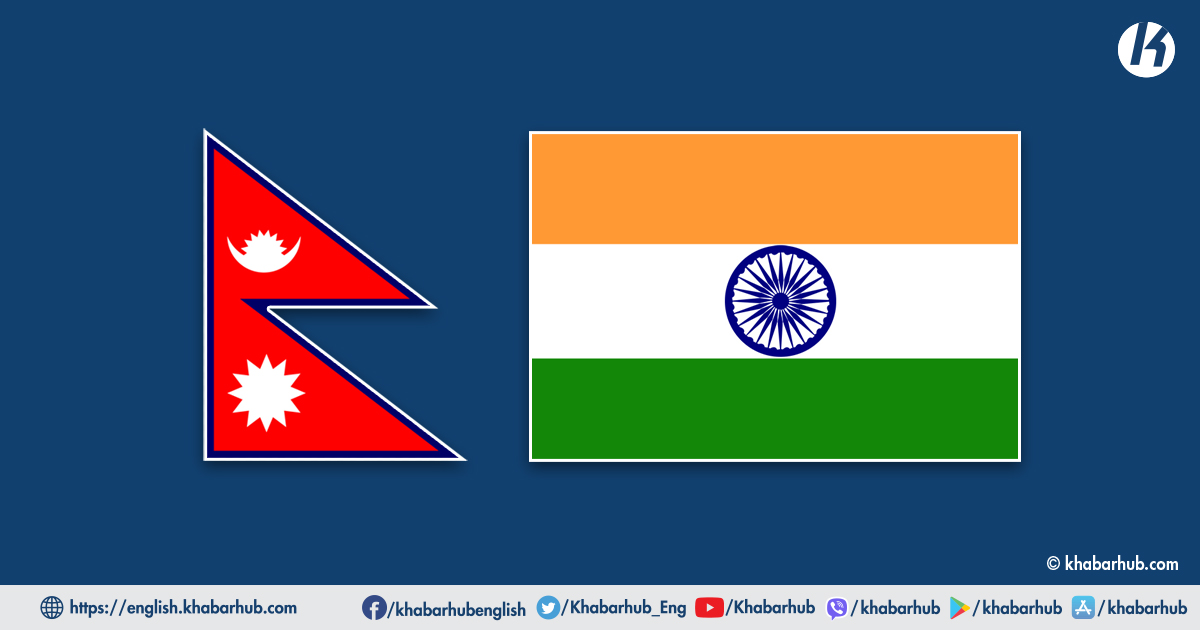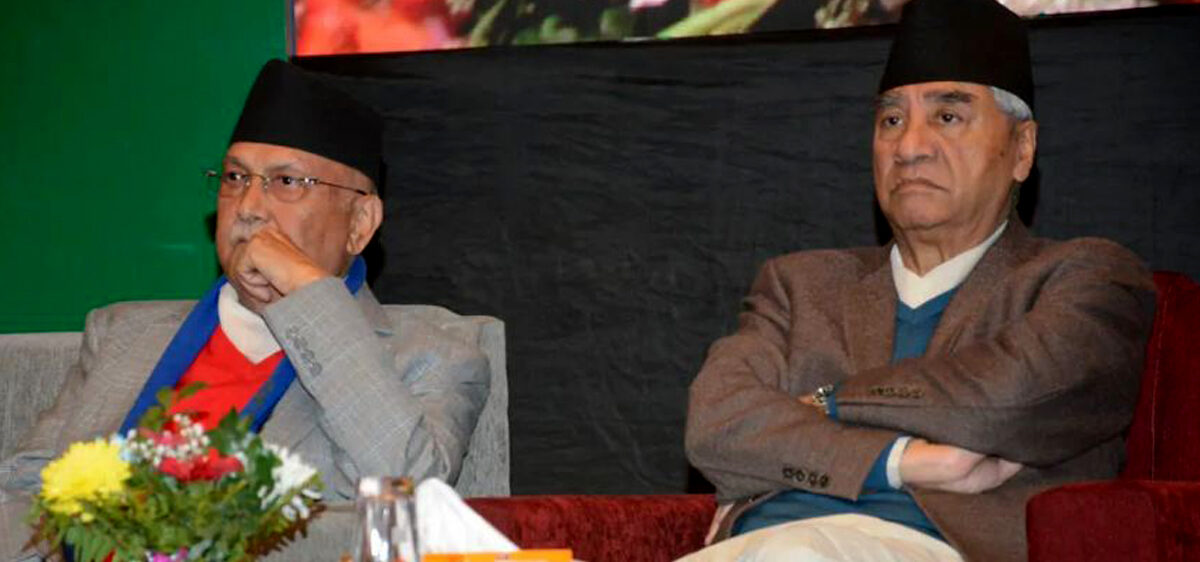KATHMANDU: Former Prime Minister and Nepali Congress President Sher Bahadur Deuba’s abrupt decision to cancel his scheduled visit to India has sparked widespread political speculation, with many interpreting it as a sign of Indian Prime Minister Narendra Modi’s displeasure with the current Nepali Congress-UML alliance.
Deuba was set to attend the ‘Kumbh Global Summit on Development and Sustainability’ in Prayagraj, organized by the Uttar Pradesh government, but canceled his trip just hours before his scheduled departure.
While Deuba’s personal secretary, Bhanu Deuba, cited crowding and other reasons for the last-minute cancellation, political insiders suggest that the underlying cause may be more complex.
According to Nepali Congress sources, Deuba was seeking to mend strained ties with New Delhi but opted out after realizing that no high-level political meetings, including with Modi or Indian External Affairs Minister S. Jaishankar, were on the agenda.
Indian displeasure with Congress-UML alliance
The roots of the tension can be traced back to the political reshuffling that occurred last year. The alliance between the Nepali Congress and UML, led by UML Chairman KP Sharma Oli and supported by Deuba, led to the ousting of the previous government headed by Maoist Center Chairman Pushpa Kamal Dahal ‘Prachanda.’
The coalition agreement, brokered secretly at the residence of a businessman at midnight, was seen as a strategic move to break the power equation in Nepal’s political landscape.
However, the Indian establishment was reportedly dissatisfied with this new power configuration, perceiving it as a threat to its traditional influence over Nepal’s political affairs. The perception that Deuba and Oli had forged an internal alliance to destabilize the Dahal-led government did not sit well with New Delhi.
Modi’s cold shoulder

The strain in relations became evident as India did not extend an official invitation to Prime Minister KP Sharma Oli, even seven months after the formation of the new government.
This broke the long-standing tradition of India inviting newly appointed Nepali prime ministers for an official visit, typically within a few weeks of their swearing-in. Notably, Oli had invited Modi to visit Nepal less than a month into his fourth term as prime minister.
To further underscore the diplomatic cold shoulder, attempts by Nepali leaders to secure a visit to India were unsuccessful. Foreign Minister Dr Arzu Rana Deuba and UML Deputy General Secretary Pradeep Gyawali both traveled to New Delhi separately in December, hoping to arrange Oli’s visit and improve bilateral relations. However, they reportedly returned empty-handed after Indian officials declined to engage in political discussions.
The perceived snub has fueled speculation that Modi is unhappy with the Nepali Congress-UML coalition, viewing it as a deviation from Nepal’s traditional power dynamics.
Political analysts suggest that Modi’s discontent is rooted in the perception that Deuba supported Oli in breaking the power equation, thereby sidelining India’s traditional allies within Nepal’s political spectrum.
Nepali Congress insiders indicate that Deuba was keen on mending ties with New Delhi, especially since he is seen as a potential candidate for the next prime ministerial term. By attending the Prayagraj summit, Deuba aimed to reestablish communication channels with the Indian leadership. However, after learning that no high-level political meetings were scheduled, he decided to call off the visit.
“Modi is angry with Nepali Congress after supporting Oli. Deuba was going on a private visit but intended to complete political work. The visit was canceled when it became clear that no political work could be achieved on this trip,” a senior Nepali Congress leader revealed.
Another source pointed out that Deuba’s decision was also influenced by the potential political implications within the ruling coalition. By visiting India at this sensitive juncture, Deuba risked creating suspicion among coalition partners, potentially destabilizing the fragile alliance.
“The President is not interested in the current alliance going up and down,” explained the Nepali Congress leader.
Risks for the future

The cancellation of Deuba’s visit and the ongoing diplomatic freeze highlight the complex geopolitical dynamics between Nepal and India. Modi’s perceived displeasure with the Congress-UML alliance not only complicates Deuba’s political aspirations but also puts Oli’s government in a precarious position.
The situation also underscores India’s strategic interest in maintaining influence over Nepal’s political landscape. By withholding high-level engagements, Modi is signaling his disapproval of the current power equation, potentially pressuring Nepali leaders to rethink their alliances.
However, Min Bishwakarma, head of the Information, Communications, and Publicity Department of the Nepali Congress, downplayed the political implications, asserting that the ruling alliance remains stable despite Deuba’s postponed visit.
“Our alliance is not that weak,” Bishwakarma told Khabarhub, dismissing speculations of an imminent political shake-up.









Comment